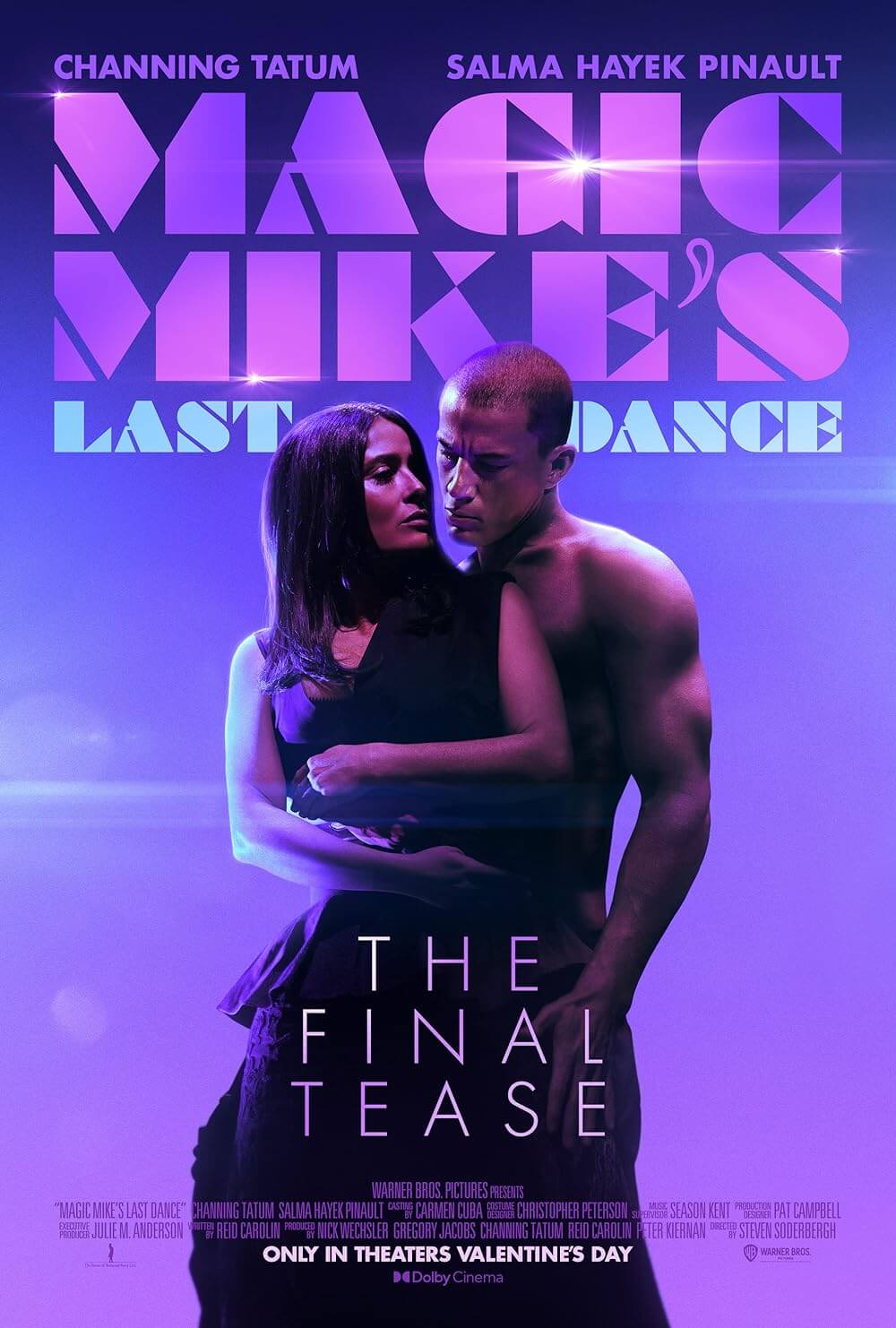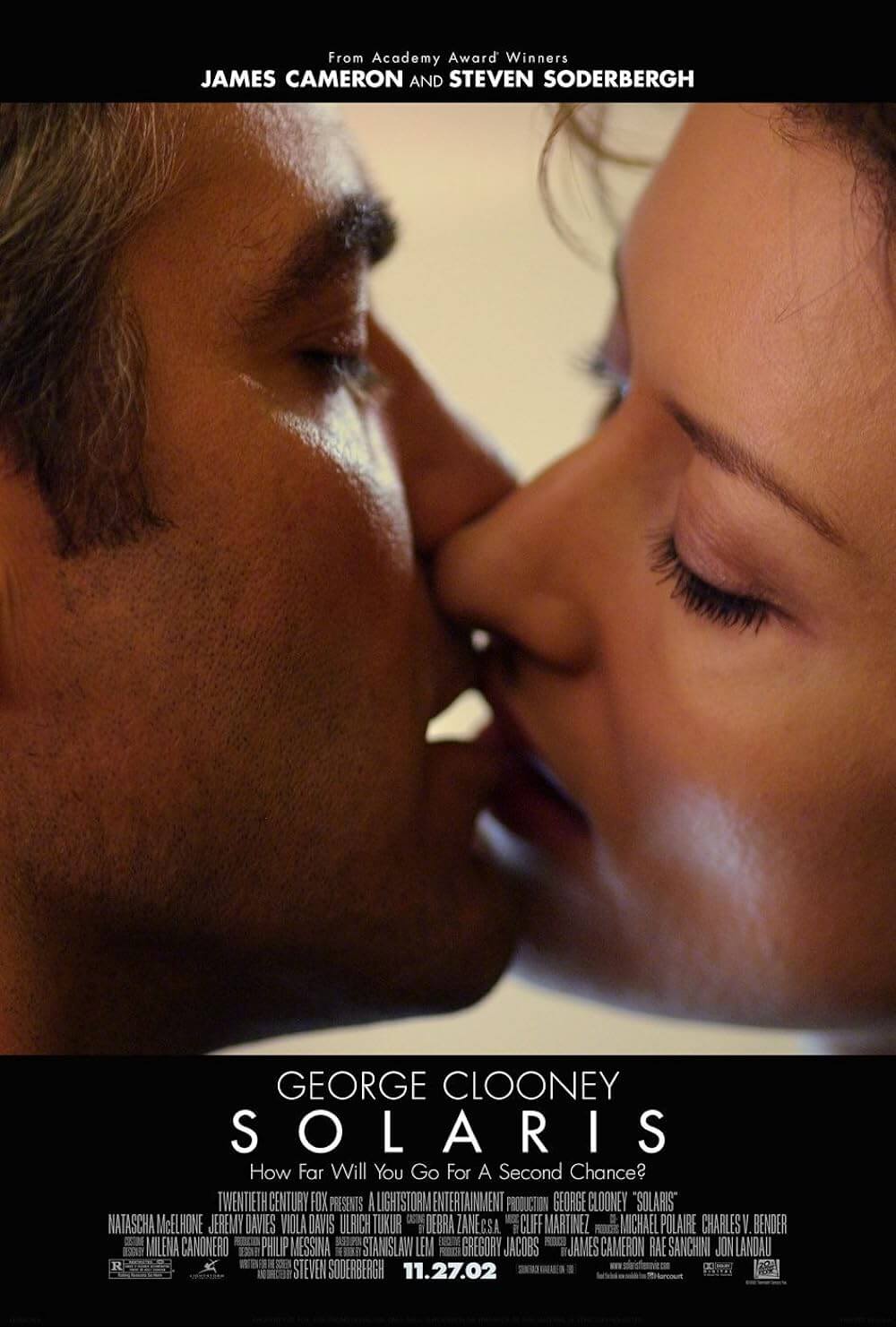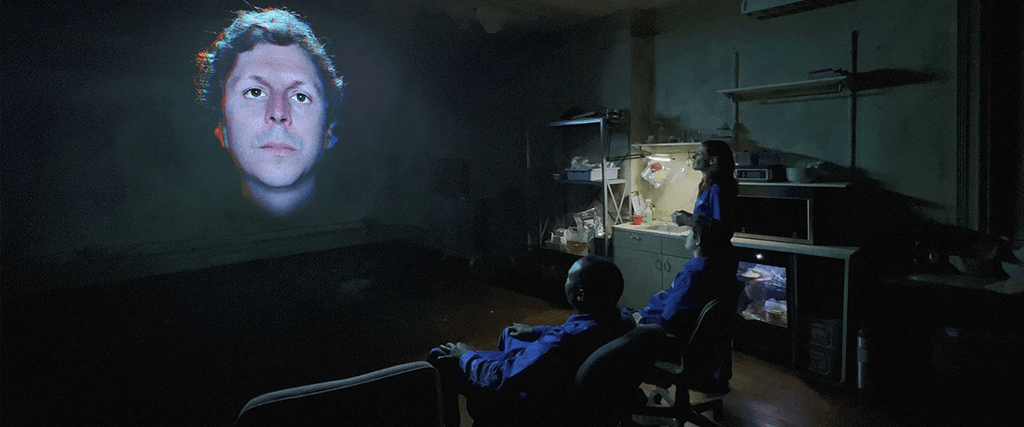
COMMAND Z
By Brian Eggert |
What the heck is COMMAND Z? It’s director Steven Soderbergh’s plea to “Do Something.” Since exposing the corporate greed and social irresponsibility of Pacific Gas and Electric in Erin Brockovich (2000) and poking holes in the US government’s politicized “war on drugs” in Traffic (2000), Soderbergh’s career has been quietly focused on telling stories about broken systems and exploitative industries: Price-fixing in the corn industry, the misuse of psychopharmaceuticals, tax evasion among the super-rich, the ties between the government and the automobile industry, and data gathering by smart devices, to name a few. In each case, the film isn’t a call to action; he doesn’t sacrifice his narrative for an activist message but allows the viewer to come to the same conclusion as his protagonists—that those with the means should fix these broken systems. COMMAND Z is perhaps Soderbergh’s most palpable message movie, adopting a mind-bending science-fiction setup to get people to think about the future, which our society seems to avoid doing at a great cost.
The project is strange because it doesn’t fit into the tidy boxes of film or television, so it’s not playing in theaters or streaming on Netflix or Hulu. In the official announcement sent to the press and subscribers to Soderbergh’s website, delivered as an email passed down from a corporate functionary, COMMAND Z is described as “a series of some sort.” The message, credited to Fabrizia del Dongo, continues with her confusion about the format: “It’s apparently about ninety minutes long, but there are eight episodes of varying length, so is it an actual series or just a movie cut up into pieces?” The episodes range from 7 minutes to the final episode, clocking in at 21 minutes. Viewers must get access from commandzseries.com by paying $7.99, with all proceeds going to Children’s Aid and Boston University Center for Antiracist Research. But whatever you call it (web series, cinema, limited series), it’s worth your time and money.
The story takes place in 2053, when part of the US is underwater, and people must venture outside in hazmat suits. Three lowly employees report for duty in a dingy, concrete workspace with blocked-out windows and cheap office furniture: the just-there-for-a-paycheck Sam (Roy Wood Jr.), the cynical and perpetually late Emma (Chloe Radcliffe), and young enthusiastic optimist Jamie (JJ Maley). They have been gathered by the digital version of their now-dead corporate overlord, Kerning Fealty (Michael Cera), for a “mission of unprecedented importance.” Their job will be to fix the past to make the present “livable, fair for everyone” using a wormhole in a high-end dryer. After drinking a plant-based psychedelic goop, the device allows them to act as a voice in the minds of people from 2023, deemed “America’s last inflection point.” From there, they can influence important people in hopes of changing the course of history for the better.
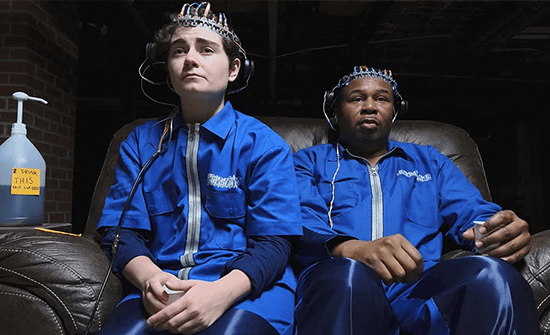 From the outset, the setup has notes of Charlie Kaufman’s blend of science fiction and humor combined with the dystopic tendencies of Terry Gilliam’s Brazil (1985). Soderbergh uses limited locations, the primary spot being the large room where the three main characters engage with Fealty’s projected digital head—a slicker and less glitchy version of Max Headroom. Their missions take them into the minds of people close to gazillionaires, the fictional equivalent of Elon Musk and Mark Zuckerberg, who, had they cared about more than greed, could make the world a better place. One mission involves convincing an energy mogul to support green energy instead of spending his riches on an underground bunker in a community designed for the wealthy to hide from the impending environmental apocalypse in comfort. Another entails the crew appealing to a banker who bought out Amazon, has eaten panda flesh, and once sued a children’s hospital.
From the outset, the setup has notes of Charlie Kaufman’s blend of science fiction and humor combined with the dystopic tendencies of Terry Gilliam’s Brazil (1985). Soderbergh uses limited locations, the primary spot being the large room where the three main characters engage with Fealty’s projected digital head—a slicker and less glitchy version of Max Headroom. Their missions take them into the minds of people close to gazillionaires, the fictional equivalent of Elon Musk and Mark Zuckerberg, who, had they cared about more than greed, could make the world a better place. One mission involves convincing an energy mogul to support green energy instead of spending his riches on an underground bunker in a community designed for the wealthy to hide from the impending environmental apocalypse in comfort. Another entails the crew appealing to a banker who bought out Amazon, has eaten panda flesh, and once sued a children’s hospital.
Inspired by Kurt Anderson’s 2020 bestseller, Evil Geniuses: The Unmaking of America: A Recent History, the scripts are credited to several writers, and each episode is as punchy and grimly funny as the last. Amusingly chilling allusions to the future—from a “De Santis Day Parade” to a 2039 war to neutralize the threat of a Ready Player One brand of virtual reality—don’t seem so unfamiliar or implausible but are always satirical. They draw from Anderson’s assessment of America as an increasingly deregulated, right-wing, religion-dominated country reeling toward a shamelessly capitalistic “Christ-based government.” Although the central characters largely serve as vessels for the story’s ideas, they have a way of growing on the viewer, leading to a rather affecting conclusion for the group. What’s most impressive is how Soderbergh’s self-financed project was clearly shot on the cheap but remains more visually engaging than most new films I’ve seen in 2023.
Then again, whether or not COMMAND Z is a film remains debatable, though the answer hardly matters. Before dropping onto Soderbergh’s website on July 17, it premiered in full at the Metrograph in New York, running as a feature-length presentation. Watch it on the website, and you must click on each episode; there’s no play-all option. However you categorize and consume it, the project is clearly personal for Soderbergh, and another in a line of small projects where he maintains artistic control and demonstrates his auteurist perspective through sociopolitical meaning. Similar to his theme in this year’s Magic Mike’s Last Dance, where a passion project offers the most fulfilling returns, you can sense that COMMAND Z’s activism is unabashed and playful but also personal and experimental—among the most freeform of his works since Schizopolis (1996). His website describes the project as being “From the A** of Steven Soderbergh,” and what could be more personal?
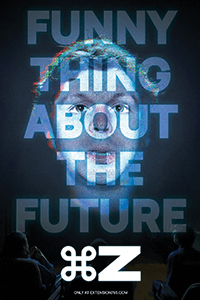
Thank You for Supporting Independent Film Criticism
If the work on DFR has added something meaningful to your love of movies, please consider supporting it.
Here are a few ways to show your support: make a one-time donation, join DFR’s Patreon for access to exclusive writing, or show your support in other ways.
Your contribution helps keep this site running independently. However you choose to support the site, please know that it’s appreciated.
Thank you for reading, and for making this work possible.
Brian Eggert | Critic, Founder
Deep Focus Review



